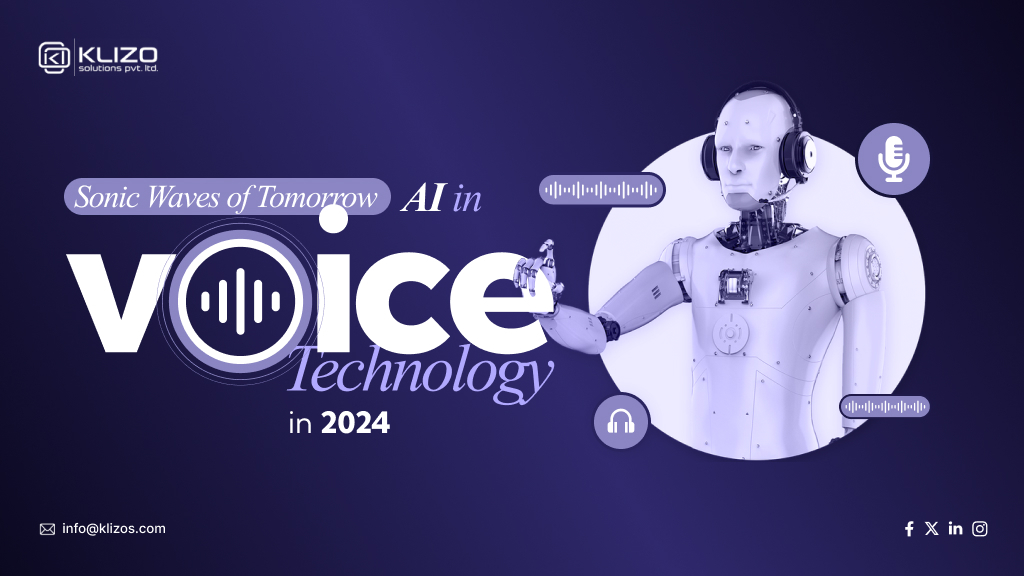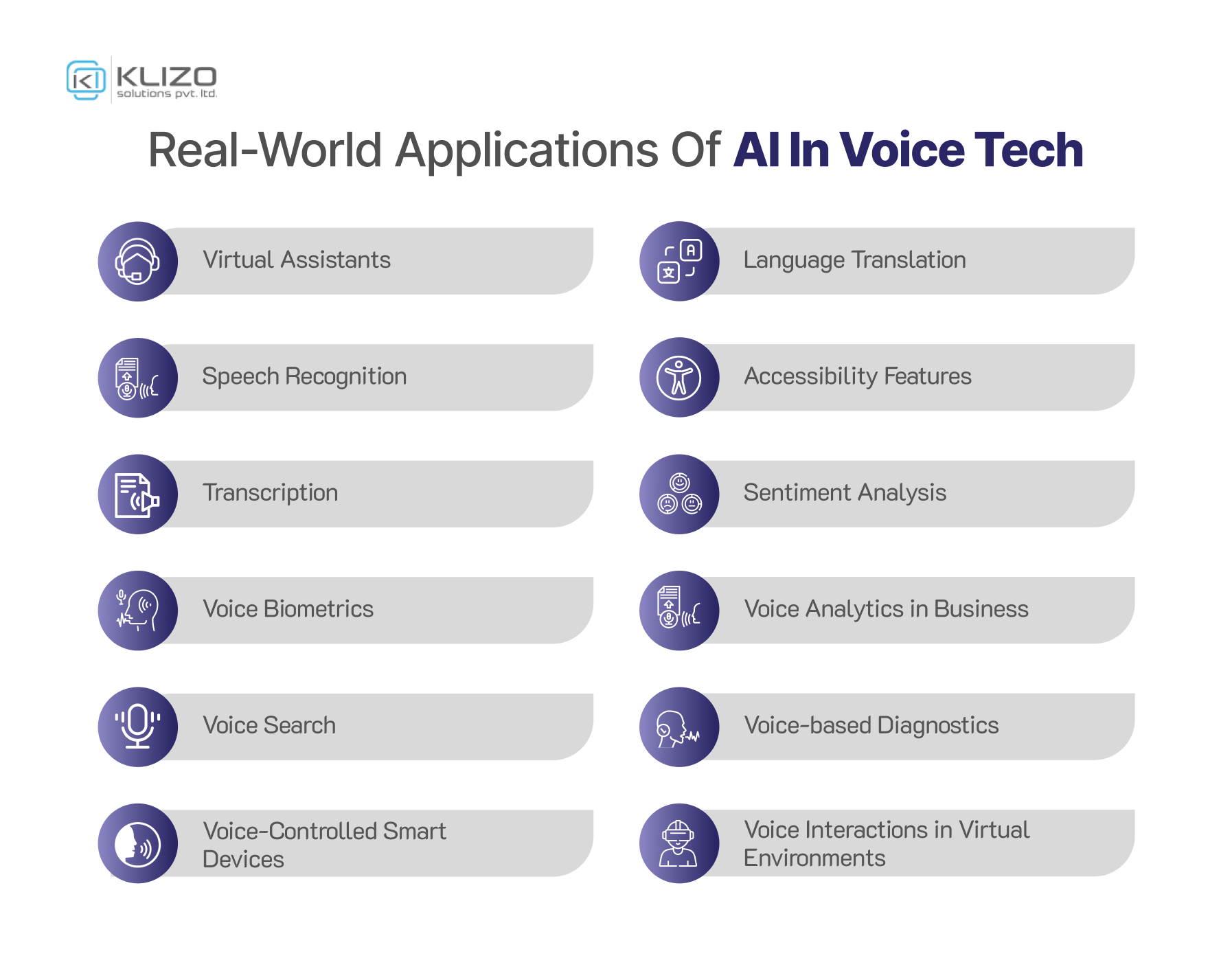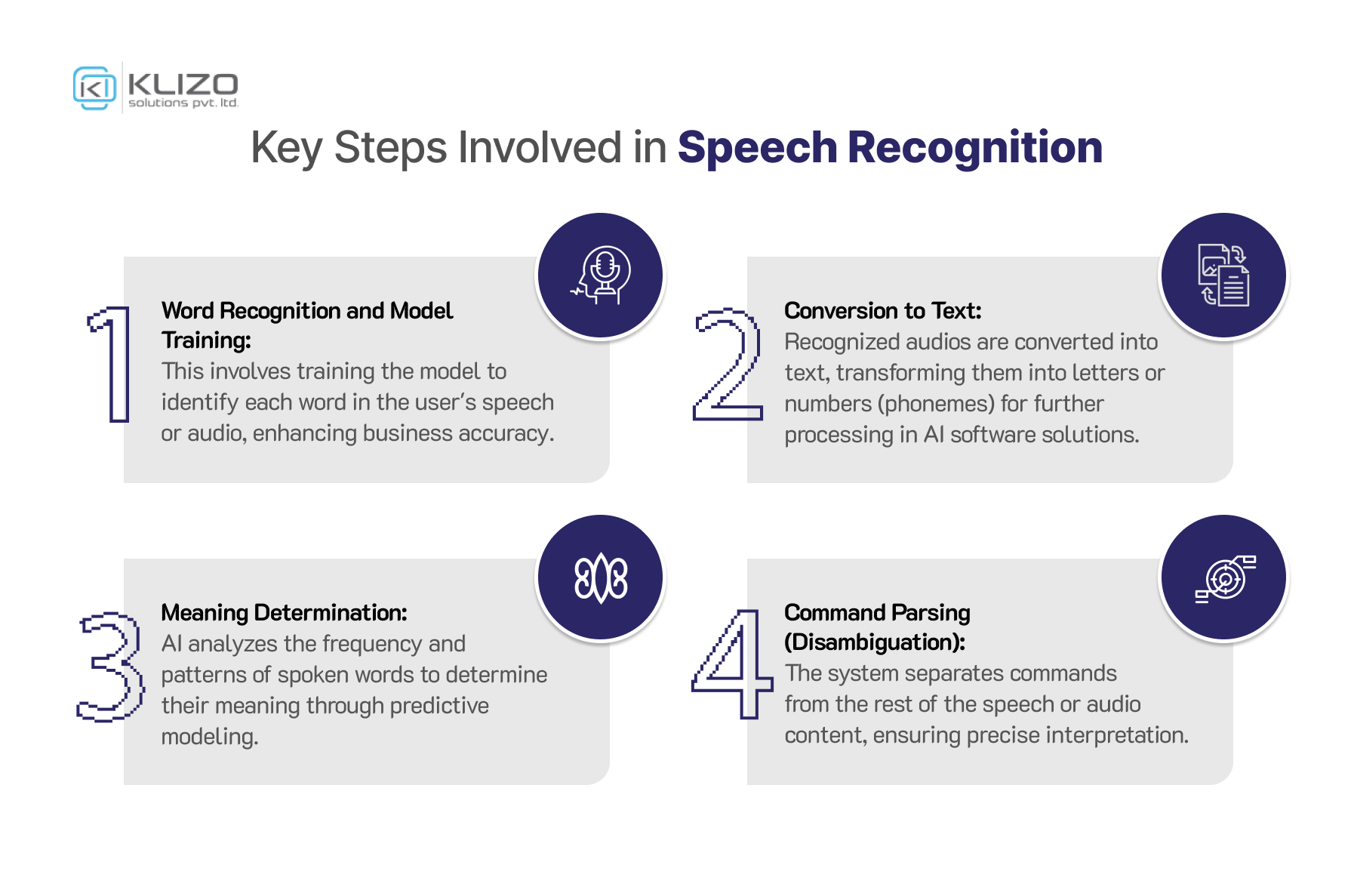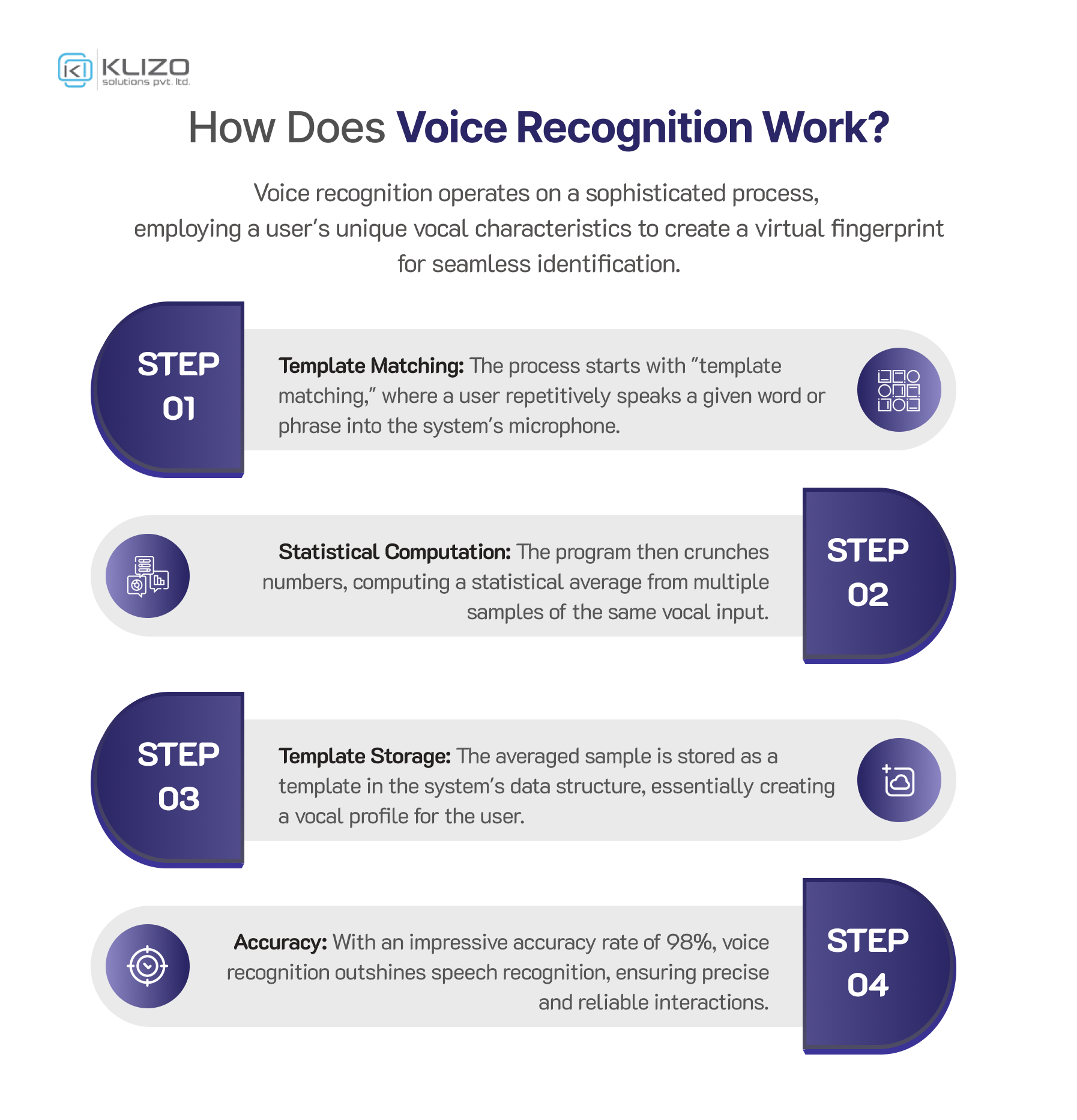


In 2024, the integration of Artificial Intelligence (AI) with voice technology has reached unprecedented heights, transforming how we interact with our devices and the world around us!
The fusion of AI in voice tech continues to redefine the way we communicate, work, and live, promising a future where our voices become powerful instruments for interacting with the digital realm.
In this article today, we delve into the transformative impact of AI in voice technology, exploring the exciting potential it holds for our daily lives.
Sounds exciting?
Then delay no more! Let’s get into how AI is harnessing the power of voice and revolutionizing voice technology in this dynamic landscape!
The landscape of AI in voice tech has undergone a remarkable transformation from its humble origins. In its nascent stages, voice recognition systems were confined to executing basic commands, grappling with lower accuracy levels. Fast forward to today, and the narrative has taken a quantum leap.
AI in voice tech has changed a lot thanks to machine learning and natural language processing. It’s not just about recognizing scripted phrases anymore; now it understands natural speech patterns, which means a big shift towards responses that feel like real human conversation.
As technology advances, AI in voice tech gets more intricate, grasping the details, context, and subtleties in how we talk. The days of awkward talks with machines start to fade as AI in voice tech replaced by lively dialogues reshaping how humans and computers interact.
This evolutionary saga not only enhances convenience but also opens doors to a myriad of possibilities. Moving from strict commands to detailed conversations shows the constant push for innovation in the growing field of AI voice tech.
The future? It sounds promising, articulate, and remarkably human!
AI voice technology is revolutionizing industries today. Virtual assistants like Siri, Alexa, and Google Assistant simplify tasks and control smart devices.
In customer service, interactive voice response systems offer seamless self-service options. Smart speakers, a rising trend, respond to voice commands for music, weather updates, and smart home management.
This convergence of AI and voice is reshaping our daily interactions, promising a future where our voices unlock a world of convenience and possibilities. For example, by 2024, a whopping 8.4 billion AI-powered digital voice assistants is expected to be there worldwide—more than the total number of people on the planet!

Artificial Intelligence (AI) has ushered in a transformative era for voice command technology, reshaping how we interact with devices and applications.
Fueled by sophisticated natural language processing (NLP) and machine learning algorithms, AI in voice command systems enables users to control and navigate technology through spoken instructions, creating a seamless and intuitive user experience.
Advancements Propelled by AI in Voice Command:
AI-driven voice command technology stands as a testament to the ever-expanding possibilities of human-machine interaction. The journey ahead promises increasingly sophisticated and intuitive voice commands, shaping a future where technology responds seamlessly to the spoken word.
Speech recognition, powered by NLP (natural language processing) and machine learning, is a technology that enables computers and applications to comprehend and transcribe human speech into text.
And AI has irrevocably transformed our interaction with technology, making speech recognition more natural, accessible, and user-friendly. The AI tech is employed to grasp the nuances of a person’s spoken words or language and subsequently transform this verbal content into text. AI powered speech recognition tech is now used in today’s VUI or Voice User Interfaces.
Speech recognition in AI involves the utilization of machine learning to analyze voice and language, learning the words spoken, and then translating them into accurate text on a screen.

Speech recognition plays a crucial role in AI applications, allowing computers and software to interpret human speech, process information rapidly, and interact with users using natural language.
How AI improves Speech Recognition:
AI also uses natural language processing (NLP) to understand the context, meaning, and intent of speech, which helps to reduce errors and improve the quality of speech recognition.
AI can also adapt to different accents and pronunciations using speaker identification and adaptation techniques, expanding the reach and accessibility of speech recognition.
Using speech analytics and speech summarization, AI can extract useful information and insights from speech and create new applications and features that can enhance the user experience and value of speech recognition.
Voice recognition is a cutting-edge technology that transforms spoken words into actionable data utilizing advanced algorithms and, of course, AI. It’s like magic for your voice – your words become commands, making devices understand and respond to your unique vocal cues.
Voice recognition involves converting spoken language into digital signals, empowering machines to comprehend and interpret human speech.
Unlike speech recognition, which comprehends any speech within its language parameters, voice recognition is tailored to identify and authenticate a specific user’s voice, adding a personalized touch to the interaction.

How AI Improves Voice Recognition:
Artificial Intelligence takes voice recognition to the next level, injecting a dose of futuristic flair into an already remarkable technology.
Instances of voice recognition applications encompass various uses, such as virtual assistants like Siri, Alexa, and Google virtual assistants. These intelligent systems employ voice recognition software to engage and interact seamlessly with users.
AI in voice personalization involves utilizing artificial intelligence and machine learning algorithms to understand and adapt to individual users’ speech patterns, preferences, and linguistic nuances.
This technology goes beyond simple recognition, aiming to create tailored and immersive voice interactions by continuously learning and adapting to provide a more personalized user experience. AI voice personalization allows devices and applications to respond and interact with users in a way that feels uniquely tailored to each individual.
In wrapping up our exploration of the captivating realm of AI in voice technology, it’s clear that we’re standing at the threshold of a digital revolution!
In this symphony of innovation, AI in voice tech isn’t just a tool; it’s a dynamic partnership between humanity and technology, it’s a dynamic force propelling us into a future where our devices not only understand us but empathize with our needs.
Picture a world where your gadgets don’t just respond; they anticipate, comprehend nuances, and adapt to your unique communication style. We’re not merely witnessing an evolution; we’re becoming part of a narrative where technology speaks our language, quite literally!
And if you want to harness the power of the latest and cutting-edge technologies like AI into your web development, contact us now!
At Klizo Solutions, we specialize in crafting digital experiences that harness the power of the latest innovations.
So, let’s embrace this transformative era, where the resonance of AI in voice tech shapes not just digital interactions but the very essence of progress. Explore the future with us and redefine what’s possible in the realm of technology!
Previous article
10 Things To Know To Make It Big In Web Development Career 2024
Joey Ricard
Klizo Solutions was founded by Joseph Ricard, a serial entrepreneur from America who has spent over ten years working in India, developing innovative tech solutions, building good teams, and admirable processes. And today, he has a team of over 50 super-talented people with him and various high-level technologies developed in multiple frameworks to his credit.

Subscribe to our newsletter to get the latest tech updates.